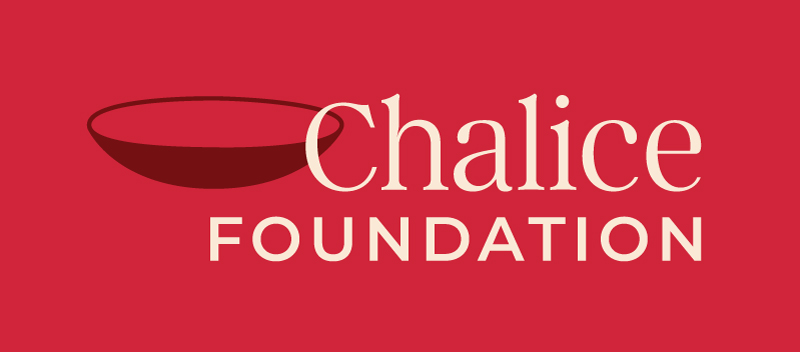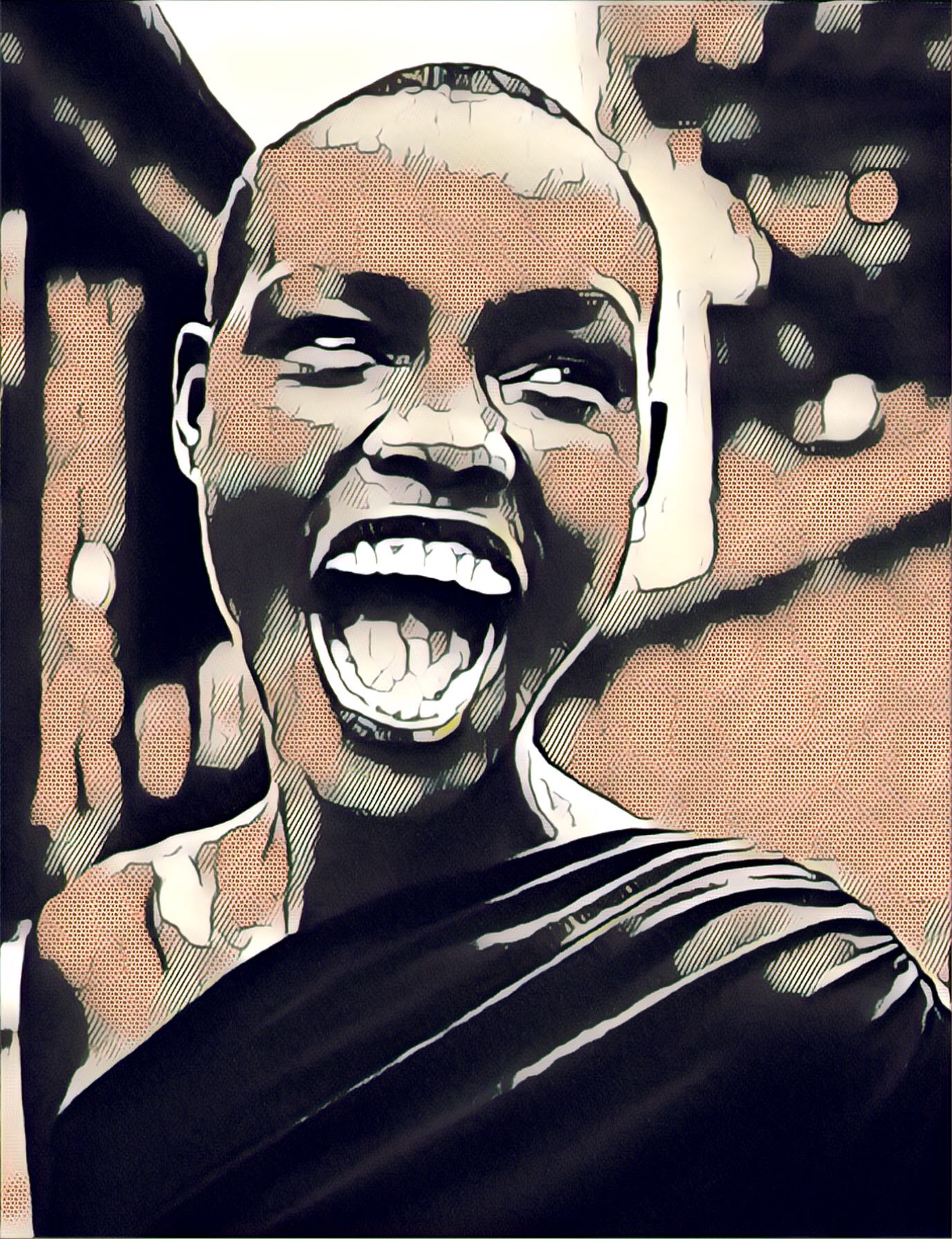We are thrilled to host this blog on how the Yagazie Foundation was established and how it is providing menstrual education in rural Nigeria.
The story behind my decision to establish Yagazie Foundation was the life experiences of my father during and after the Nigeria/Biafra civil war. He was born in 1953 and he was 14 when the war broke out in July 1967 in the then Eastern Region of Nigeria. He lost his entire family and became an errand boy to the Nigerian soldiers at a refugee camp. At the end of the war in January 1970 he followed a trader to a village in western Nigeria and when the trader abandoned him he became a street child and started running errands for people on the street.
One of the people he ran errands for advised him to learn a sustainable vocation. At first he learned to drive then learnt carpentry to be able to sustain a family in the future. That was how my father learned his vocation and succeeded in his job, he married my mother and together they raised a large family.
During my childhood my father would take us to hospices, orphanages, hospitals, and prisons to distribute clothes, food, and household items to people in distress. When I told him I wanted to form a charity organization, he replied with so much joy “Yagazie” which means in my dialect “it will be successful”, so I noted his prayerful response as the name of the new organization, the Yagazie Foundation.
Yagazie Foundation is now a duly registered charity and non-governmental organization comprising a professional team and volunteers. Our focus is to reach out to the underprivileged and struggling families through our sustainable programs and projects in line with the UN Sustainable Development Goals (SDGs).
 In response to the deteriorating plight of women and girls in many slums across Nigeria, we initiated a project called the Yagazie Foundation for Menstrual Hygiene, safety, and management for vulnerable women and girls. Based in rural areas of Nigeria the project aims to address the important, ongoing, and often neglected, menstrual needs of women and girls.
In response to the deteriorating plight of women and girls in many slums across Nigeria, we initiated a project called the Yagazie Foundation for Menstrual Hygiene, safety, and management for vulnerable women and girls. Based in rural areas of Nigeria the project aims to address the important, ongoing, and often neglected, menstrual needs of women and girls.
The onset of menstruation is one of the most important physiological changes occurring in girls during the adolescent years, heralding the onset of physiological maturity in girls, and part and parcel of their lives until menopause. Apart from personal importance, this phenomenon also has social significance.
Hygiene-related practices of women during menstruation are of considerable importance, as, if poorly managed, they may increase vulnerability to Reproductive Tract Infections (RTIs). Poor menstrual hygiene is one of the major reasons for the high prevalence of RTIs in the country and contributes significantly to female morbidity. Lack of knowledge regarding menstruation and menstrual hygiene leads to poor understanding and practices. There are various issues like no availability of menstrual materials, or irregular supply, no privacy, lack of clean water, no way to dispose of menstrual materials, insufficient reproductive health education, and lack of family support. Women and girls are vulnerable to abuse in exchange for menstrual products. All these issues need attention for the promotion of menstruated hygiene, preferably simultaneously.
 In Nigeria, menstruation is surrounded by myths and misconceptions with a long list of “do’s” and “don’ts” for women. Menstruation and menstrual practices are still clouded by taboos and socio-cultural restrictions resulting in adolescent girls lacking knowledge and remaining ignorant of the scientific facts and hygienic health practices, which sometimes results in adverse health outcomes, as already mentioned.
In Nigeria, menstruation is surrounded by myths and misconceptions with a long list of “do’s” and “don’ts” for women. Menstruation and menstrual practices are still clouded by taboos and socio-cultural restrictions resulting in adolescent girls lacking knowledge and remaining ignorant of the scientific facts and hygienic health practices, which sometimes results in adverse health outcomes, as already mentioned.
Common beliefs and misconceptions include that:
- Menstruating women and girls are unclean
- Menstruating women and girls should not eat certain foods
- Females should not cook during menstruation
- A girl should eat separately during her menstruation
- Taking a bath during menstruation causes infection or infertility
- A tampon or menstrual cup can get totally lost inside the vagina
- Once she has started menstruating a girl is ready to marry and have babies.
While all of these have serious impacts it is the last, concerning a girl’s readiness to marry and bear children, and by implication discontinue her education, that is the most concerning and impactful, for the life of the girl and her children and community.
During the educational programs we run every month:
- we reach out to at least 100 women and 100 girls. We have a lot of communities to cover and our target is to reach one million women and girls before the end of the UN Sustainable Development Goals in 2030.
- we provide women and girls with quality education on the physiology of the menstrual cycle, on menstrual hygiene and unprotected sex and give them enough menstrual materials such as menstrual cloths, reusable pads, disposable sanitary pads, tampons, menstrual cups and toiletries.
We follow up after the educational programs to check and ensure the projected benefits are being reached, and assess and adjust our delivery as necessary.
Dear reader, if you are able to make a donation, of any amount, to Yagazie Foundation for this project each dollar would enable us to help bridge the gap in the menstrual issues facing women and girls in rural areas in Nigeria, and provide all the life-long benefits of quality menstrual education.
For more information please email jane@chalicefoundation.org or kennedy.ezirim@yagaziefoundation.org for more information. Please visit the Yagazie Foundation’s GoFundMe page here.

Ezirim C. Kennedy
Ezirim C. Kennedy is a Global Citizen and an Alumnus of the University of Jos and ESGT where he studied diploma in Law and International Relations respectively. He is an Optimism Coach, Diplomatic Fellow of the Federation of International Gender Human Rights (FIGHR) on Gender-Based Violence, Maternal Health Care, Human Rights Advocacy, Cultural Diversity and Inclusion, Youths for Human Rights International (YHRI), KDSL Global Fellow, and Humanologia Fellow.
He has a passion for Health Care, Sports, Education, Youth Empowerment, Gender Equality, Humanitarianism, Peace, and Capability Building. He is the Founder/Global Coordinator of the Yagazie Foundation and the African Coaches League which serves humanity in different ways and works in conformity to the Sustainable Development Goals (SDGs) in order to solve societal issues for the benefit of the voiceless, underprivileged living in underserved and unreached communities anywhere in the world.


